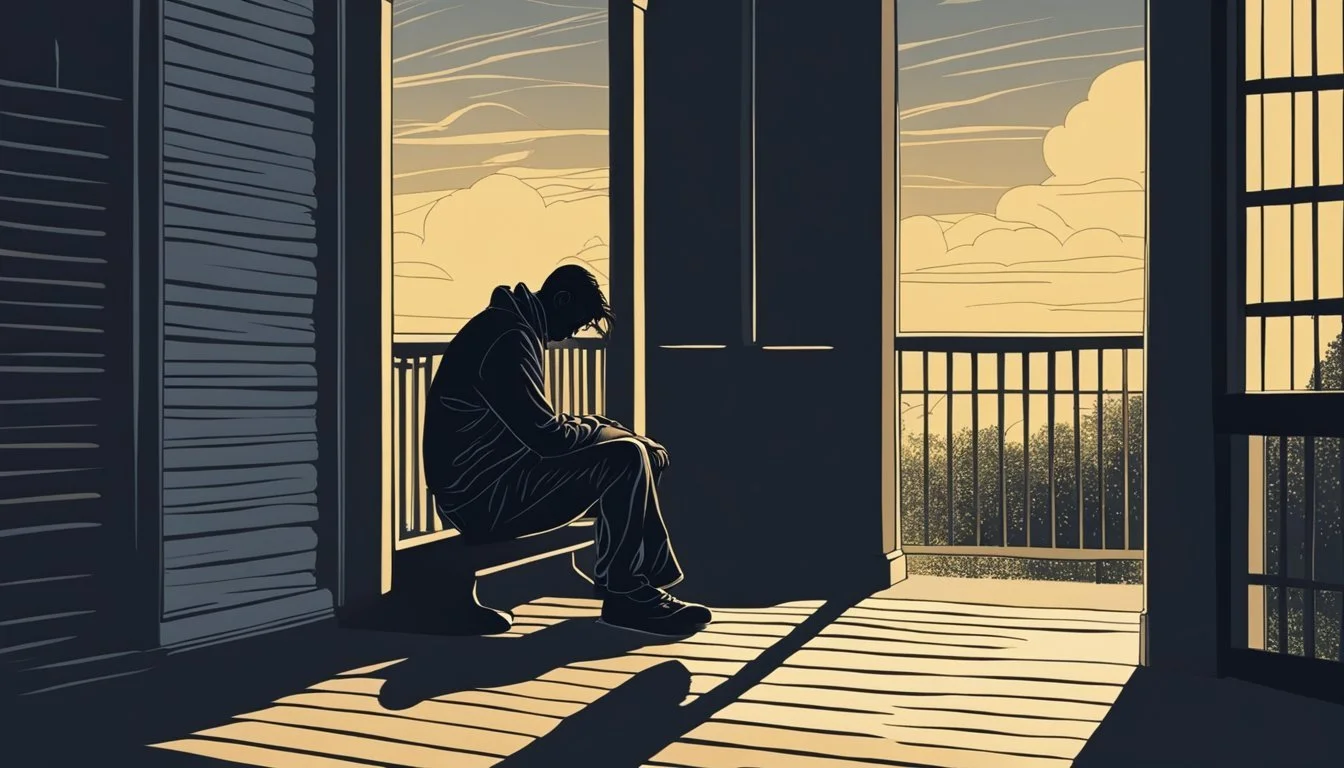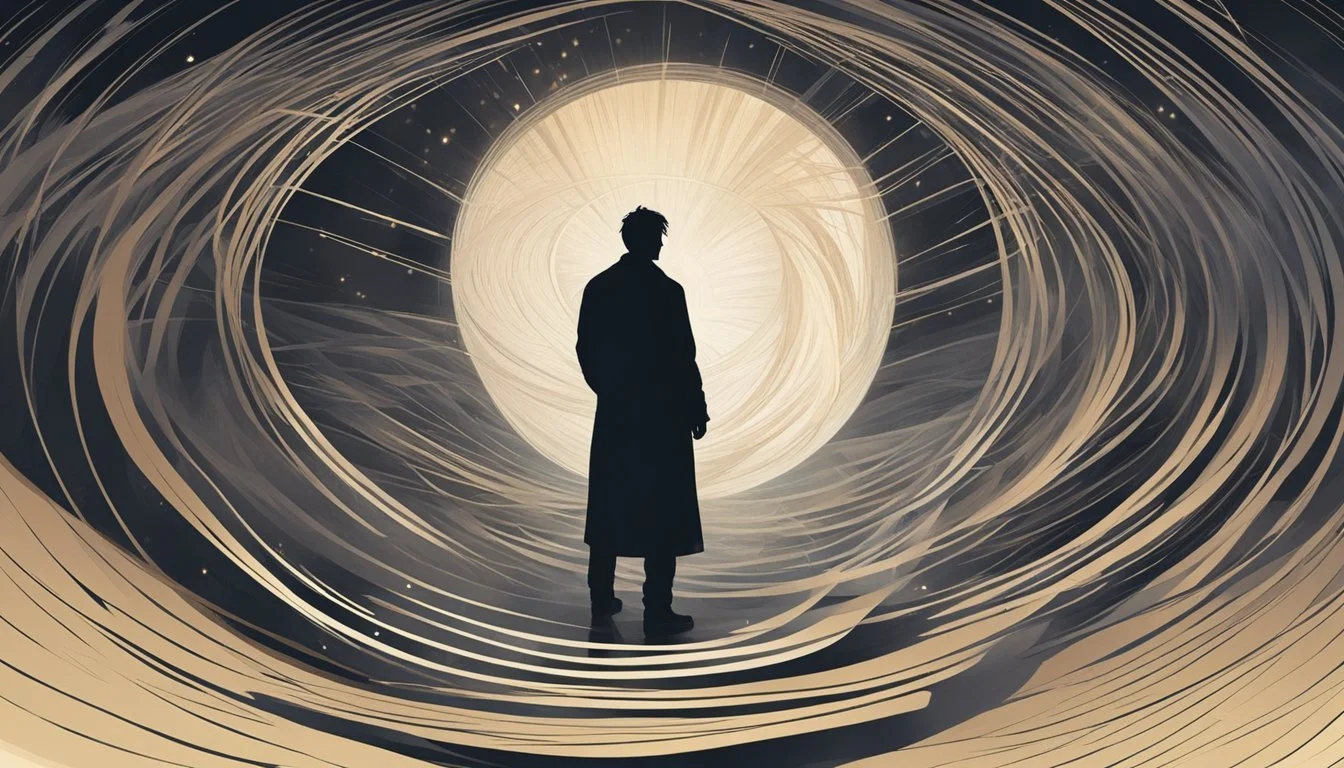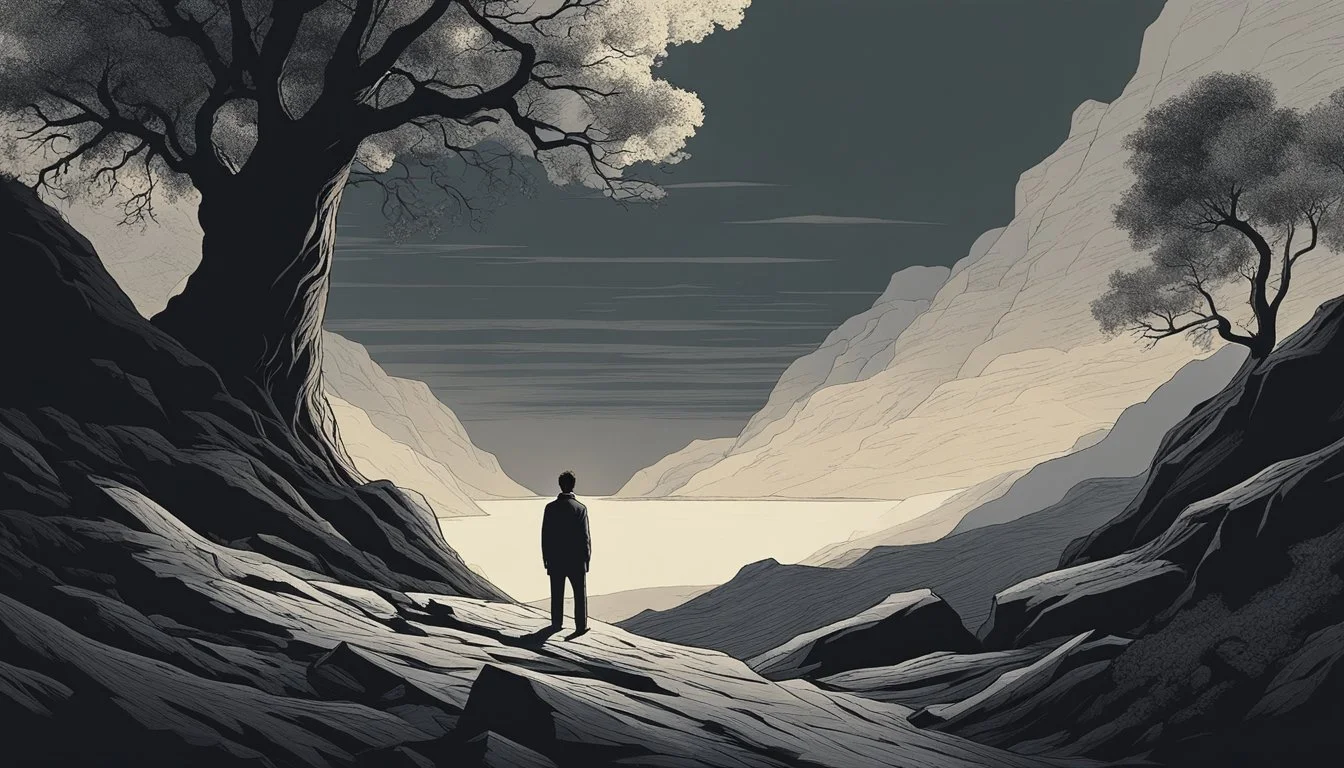Rocking Through the Darkness: Ben Moody's Battle with Depression
Former Evanescence Guitarist's Mental Health Journey
Depression can cast a long shadow over even the brightest lives, and Ben Moody's journey through its darkness is a testament to the power of resilience and creativity. The former Evanescence guitarist faced an intense battle with mental health that threatened to derail his musical career and personal life. Through his struggle, Moody found solace in his art, using music as a lifeline to navigate the tumultuous waters of depression.
Moody's experience echoes the silent struggles of many in the music industry, where the pressure to perform and create can often exacerbate underlying mental health issues. His story offers a glimpse into the complex relationship between artistic expression and emotional well-being. It highlights how the very passion that drives musicians can also become a double-edged sword, both a source of pain and a path to healing.
The Rise of Ben Moody and Evanescence
Ben Moody and Amy Lee's collaboration in Little Rock, Arkansas spawned one of the most influential rock bands of the early 2000s. Their musical partnership laid the foundation for Evanescence's meteoric rise to fame.
Forming the Band: A Journey with Amy Lee
Ben Moody, born on January 22, 1981, met Amy Lee at a youth camp in 1994. The two bonded over their shared love of music and began writing songs together. Their creative chemistry was evident from the start, blending Moody's guitar skills with Lee's powerful vocals.
In 1995, they officially formed Evanescence in Little Rock. The band's early years were marked by local performances and self-released EPs. Moody and Lee's dedication to their craft gradually built a loyal fanbase in Arkansas.
As co-founders, they shaped Evanescence's signature sound - a mix of gothic metal, alternative rock, and classical elements. This unique blend would later captivate audiences worldwide.
Evanescence's Breakthrough and 'Fallen'
Evanescence's big break came in 2003 with the release of their debut album, "Fallen". The record showcased Moody and Lee's songwriting prowess, featuring hit singles like "Bring Me to Life" and "My Immortal".
"Fallen" was an instant success, propelling Evanescence to international stardom. The album's dark themes and dramatic soundscapes resonated with listeners, selling millions of copies globally.
Moody's guitar work and Lee's haunting vocals became hallmarks of Evanescence's style. Their music videos gained heavy rotation on MTV, further cementing their popularity.
Despite the band's rapid ascent, tensions between Moody and Lee began to surface. This internal conflict would ultimately lead to significant changes in Evanescence's lineup.
Confronting Darkness: Exploring Themes of Depression
Ben Moody's music often reflects his personal struggles with depression. His lyrics and public statements provide insight into his experiences, while fan support has played a significant role in his journey.
Lyrics and Personal Struggles
Ben Moody's songwriting frequently delves into themes of depression and inner turmoil. His lyrics often paint vivid pictures of emotional pain and isolation. In songs like "Everything Burns" and "The End Has Come," Moody explores feelings of hopelessness and despair.
These tracks serve as a window into his personal battles with mental health. Moody has been open about using music as an outlet for his emotions. He once stated in an interview, "Writing helps me process what I'm going through."
His compositions often feature dark imagery and introspective themes. This raw honesty in his work has resonated with many listeners facing similar challenges.
Public Perception and Fan Support
Ben Moody's openness about his depression has significantly impacted his public image. Many fans have expressed appreciation for his vulnerability and authenticity. This transparency has fostered a strong connection between Moody and his audience.
Social media platforms have become spaces where fans share their own stories of depression. They often credit Moody's music as a source of comfort and understanding. This mutual support has created a sense of community among his followers.
Moody has acknowledged the positive impact of fan support on his mental health journey. He's expressed gratitude for the encouragement he receives. This reciprocal relationship between artist and audience has become an integral part of Moody's career and personal growth.
Turbulence and Departure from Evanescence
Ben Moody's time with Evanescence was marked by rising tensions and creative disagreements. His sudden exit in 2003 sent shockwaves through the band and their fanbase.
Internal Conflicts and Creative Differences
Ben Moody and Amy Lee's partnership began to fray as Evanescence gained popularity. Their differing artistic visions led to increasing friction within the band. Moody favored a more commercial sound, while Lee sought to explore darker, more experimental territories.
The strain became evident during their European tour in 2003. Backstage arguments and on-stage tension highlighted the growing rift between the founding members.
On October 22, 2003, following a concert in Berlin, Moody abruptly left the band. His departure came as a shock to fans and fellow band members alike.
The Impact of Moody's Departure on the Band
Moody's exit forced Evanescence to quickly adapt. Guitarist John LeCompt stepped in to fill the void temporarily. The band later recruited Terry Balsamo as their new lead guitarist.
Lee took on a more prominent role in the band's creative direction. This shift allowed her to explore new musical territories and assert her artistic vision.
Evanescence's sound evolved following Moody's departure. Their subsequent album, "The Open Door," showcased a more mature and complex musical style.
Despite the initial turbulence, the band persevered. They continued to produce hit records and maintain a dedicated fanbase in the years following Moody's exit.
Collaborations and Musical Endeavors
Ben Moody's career expanded significantly after leaving Evanescence. He collaborated with numerous high-profile artists and contributed to various projects across different media.
Working with Kelly Clarkson and Avril Lavigne
Moody co-wrote and produced tracks for Kelly Clarkson's album "Breakaway." He contributed to the hit single "Because of You," which reached the top 10 in multiple countries.
The songwriter also worked with Avril Lavigne on her album "Under My Skin." He co-wrote the song "Nobody's Home," which became a fan favorite.
These collaborations showcased Moody's versatility as a songwriter and producer beyond the gothic rock sound of Evanescence.
From 'The Punisher' to 'Fantastic Four': Diverse Contributions
Moody's talents extended to film soundtracks. He composed music for "The Punisher" soundtrack, demonstrating his ability to create atmospheric and intense musical pieces.
For the "Fantastic Four" soundtrack, Moody contributed the song "Everything Burns," featuring Anastacia. This track blended his rock sensibilities with cinematic flair.
These projects allowed Moody to explore different musical styles and reach wider audiences through popular franchises.
Producing for a Broad Range of Artists
As a record producer, Moody worked with a diverse array of artists. He produced tracks for Daughtry, helping shape their rock sound.
Moody also collaborated with lesser-known artists like Hana Pestle, showcasing his commitment to nurturing emerging talent.
His production work extended to established stars like Céline Dion, for whom he co-wrote and produced the song "This Time."
Moody's production style adapted to each artist's unique voice while maintaining his signature emotional depth and musical complexity.
We Are the Fallen: A New Chapter
After leaving Evanescence, Ben Moody embarked on a new musical journey. He joined forces with familiar faces and a fresh voice to create We Are the Fallen, a band that would blend his signature sound with new creative energies.
Formation and Concept
We Are the Fallen emerged in 2009, bringing together former Evanescence members Ben Moody, John LeCompt, and Rocky Gray. The group recruited bassist Marty O'Brien and Irish singer Carly Smithson, known for her powerful vocals on American Idol. This lineup aimed to create music that echoed their past while forging a distinct identity.
The band's name reflected their shared experiences and desire for a fresh start. Moody saw We Are the Fallen as an opportunity to explore musical ideas he'd left behind, now with a renewed perspective and creative freedom.
Debut and Reception of 'Tear the World Down'
We Are the Fallen released their debut album, "Tear the World Down," in May 2010. The record showcased the band's hard rock style, blending Gothic influences with powerful vocals and intricate instrumentals. Lead single "Bury Me Alive" garnered attention for its intense sound and dramatic music video.
Critics and fans noted similarities to Evanescence, sparking debates about the band's originality. Some praised the album's polished production and Smithson's vocal prowess, while others felt it adhered too closely to familiar territory. "Tear the World Down" reached number 33 on the Billboard 200 chart, indicating a solid start for the new group.
Solo Ventures: From Music to Film
Ben Moody expanded his creative horizons after leaving Evanescence. He launched a solo music career and ventured into film production, showcasing his diverse talents.
Ben Moody's Solo Album
Moody released his debut solo album "You Can't Regret What You Don't Remember" in 2011. The record featured collaborations with various artists and explored a range of musical styles.
Moody's solo work allowed him to express his artistic vision without constraints. He incorporated elements of rock, electronic, and orchestral music into his tracks.
The album included singles like "Everything Burns," which appeared on the Fantastic Four soundtrack. This song, featuring Anastacia, gained significant airplay and introduced audiences to Moody's post-Evanescence sound.
Branching into Film with Makeshift Films
In 2005, Moody co-founded Makeshift Films, a production company focused on creating feature films and music videos. This venture marked his transition from music to the visual arts.
Makeshift Films produced several projects, including music videos for various artists. The company allowed Moody to explore his interest in filmmaking and storytelling through a different medium.
Moody's involvement in film production demonstrated his versatility as an artist. It provided him with new creative outlets and opportunities to work with a diverse range of talents in the entertainment industry.
Legacy and Influence
Ben Moody's impact on rock music extends beyond his time with Evanescence. His songwriting and guitar work helped shape the sound of alternative and gothic metal in the early 2000s.
Influences on Modern Rock
Ben Moody's guitar riffs and songwriting style influenced numerous bands in the alternative and gothic metal scenes. His work with Evanescence, particularly on their debut album "Fallen," set a template for combining heavy guitars with orchestral elements and female vocals. This sound was emulated by many acts that followed.
Moody's approach to crafting emotional, melodic rock songs opened doors for other artists to explore similar territory. His collaborations with pop artists like Kelly Clarkson and Avril Lavigne also helped bridge the gap between rock and mainstream pop, expanding the reach of his musical influence.
Moody's Contributions to the Genre
Ben Moody played a key role in popularizing gothic-tinged alternative metal. His guitar work and production on Evanescence's early material helped define their signature sound, blending heavy riffs with electronic elements and Amy Lee's powerful vocals.
Moody's songwriting often tackled themes of inner struggle and personal darkness, resonating with a wide audience. This emotional depth became a hallmark of the genre. His ability to balance heavy, aggressive sounds with more melodic, accessible elements contributed to Evanescence's crossover success.
After leaving Evanescence, Moody continued to shape rock music through his solo work and collaborations. His versatility as a songwriter and producer allowed him to work across various subgenres of rock and pop, further cementing his legacy in the industry.







